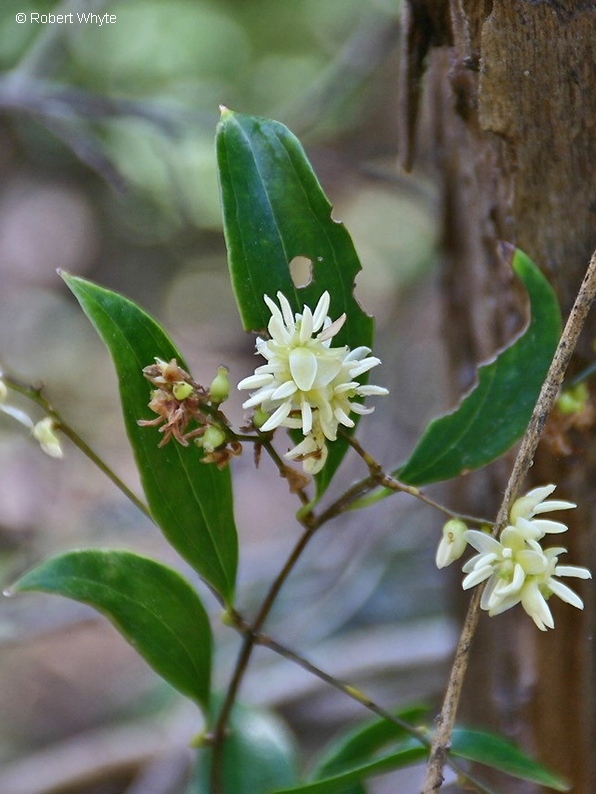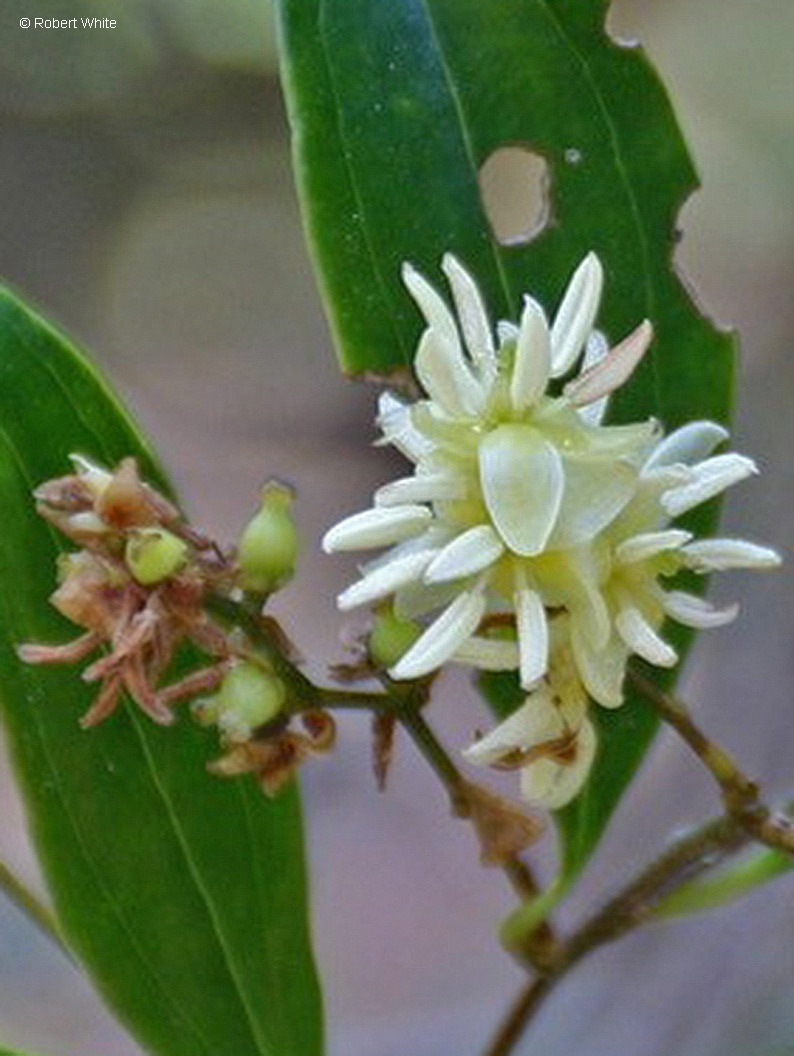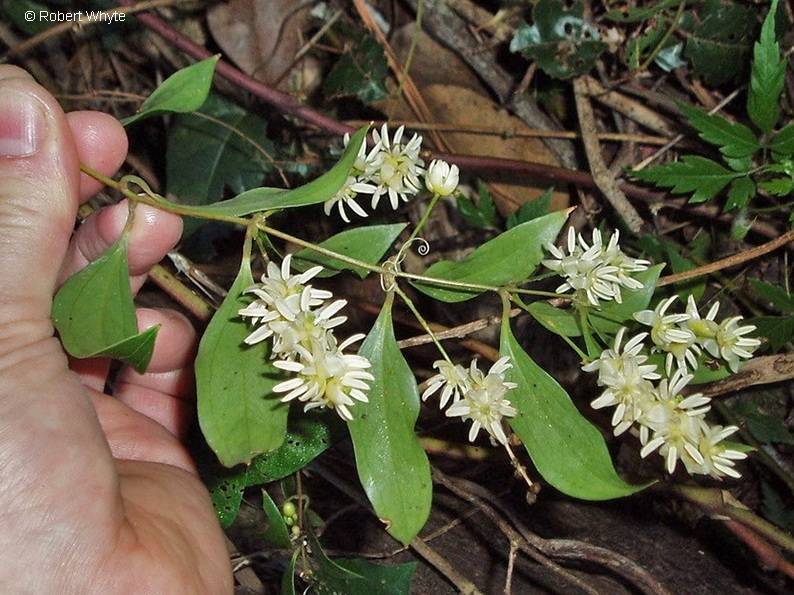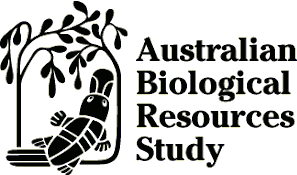Australian Tropical Rainforest Plants - Online edition
Ripogonum brevifolium Conran & Clifford



Conran, J.G. & Clifford, H.T. in George, A.S. (ed.) (1986), Smilacaceae. Flora of Australia 46: 189. Type: "Stony Ck, 4 km E of Didcot, Biggenden Shire, Qld, 23 Aug. 1983, P.I.Forster 1692; holo: BRI." [Correct collection date is 10 September 1983 (pers. comm. P.I.Forster, Dec. 2013)].
Stoutly branched climber to c. 10 m, or a straggling shrub when young, twining. Hooks or prickles 1-3 mm long, present or absent, young stems sparsely hairy, older stems mostly hairless.
Leaves simple, opposite or alternate, young leaves yellow to reddish. Stipules absent. Petiole 4-8 mm long, often ± twisted, hairless. Leaf blade elliptic, 3-10 cm long, 1.5-5 cm wide, base attenuate or cuneate, margins entire, apex acute to acuminate. Longitudinally veined with 3 prominent longitudinal veins and a fine marginal vein. Both surfaces hairless.
Inflorescences axillary, few to numerous sessile flowers in spikes. Flowers bisexual, actinomorphic, 3-merous. Tepals arranged in 2 whorls of 3, 6-8 mm long, white or cream. Stamens 6, opposite and alternating with tepals, 6-9 mm long, filaments 1-2 mm long, anthers 5-7 mm long; ovary superior, hairless, 3-locular; style 1-2 mm long, stigma 3-lobed.
Features not available.
Occurs in CEQ and southwards to central coastal New South Wales. Grows in dry rainforest.
This profile information and associated coding has been adapted from Conran & Clifford (1986), Conran (1998), and Harden et al. (2014).





